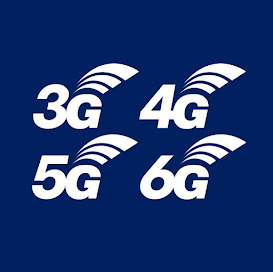Interesting article in Cnet on "10 things your mobile will do in next 10 years"
1. Wallet: This would be quite cool when available. Have been hearing about this for years now. Apparently very popular in Japan and S.Korea where people are not using credit cards anymore and instead using Phones.
A much better idea would be to have a universal recognition kind of chip which i can use as Credit card, Smart Card for Trains (In london we have Oyester cards) and then i can use this for accessing company door, garage door , etc. This would be a real killer app but doesnt look like will happen in near (or far) future
2. Internet: In December, ABI Research said that almost 50 million people used social-networking sites on their mobile phones. That number is expected to grow to 174 million by 2011. It would be cool to be able to browse using your phone. Mosst of the sites i use (including mine) are not mobile friendly and this is the thing that is turning people off the net.
3. Location: Already too many phones supporting GPS and A-GPS. The chips are becoming cheaper with cost of around $5 so the manufacturers should have no problem. In future we will get disscounted packages where we will have to receive adverts which would be location specific. Nokia has some applications which can compete with TomTom for getting directions, etc.
4. Search: Hardly anything needs to be mentioned for this.
5. TV: Have written enough on Mobile TV already. IMS Research forecasts that by 2011 there will be more than 30 million mobile TV subscribers in the United States. The firm also predicts that almost 70 million handsets capable of receiving mobile TV will be shipped in the U.S. in 2011.
6. Simplified surfing: From the Cnet article
Ever notice how many clicks it takes to find the one thing you're looking for on your phone? It's worse than counting how many licks it takes to get to the center of a Tootsie Roll Pop. But handset makers and mobile operators are
hard at work trying to make phones easier to navigate and simpler to use.iPhone from Apple is a perfect example of how user interfaces will be improved. Apple fans are confident that the company has come up with another slick and intuitive
The upcoming
design, just as it did for the iPod.
One aspect of the iPhone's interface that has been publicized is its use of sensory technology to detect when the device is rotated. This allows the phone to automatically render pictures on the screen in portrait (vertical) or landscape (horizontal) format. That allows the user to determine which format is best for viewing whatever is on the screen, be
it a Web page, video, or photo.motion-sensing technology, similar to that used in the Nintendo Wii game console, will also allow people to navigate their cell phone menus or the mobile Internet
In the future,
with a flick of their wrists.
But motion sensing is just one piece of the puzzle. Operators such as Verizon Wireless are redesigning their content menus
to reduce the number of clicks users must endure to find what they want. Ryan Hughes, vice president of digital media programming for Verizon Wireless, said he believes that user interfaces will be customizable so that users can decide
for themselves which applications will be displayed on their phones most prominently.
Motorola is already offering a customizable interface on the
Razr 2, which the company claims will make searching for contacts, accessing applications, and messaging much easier.
7. Brainier radios: Maybe in future SDRs (Software Defined Radios) may become more common and popular and yes the technology will become feasible. Also multiple radios on the chpset would mean Handovers will be possible from 3G to WiMax, Wifi, etc.
8. Personal Cell: Everyone seems to be talking of Femtocell. Where we will have a small 3G base station in our home. We could use it for Voice or High Speed data. No need for the POTS and use mobile for everything. This will still take some time as the operators dont fully understand the benefits of offering cheap data.
9. Perfect Camera: Today roughly 41 percent of American households own a camera phone. In fact, you'd be hard-pressed to buy a phone today that doesn't have a camera. By 2010 more than 1 billion mobile phones in the world will ship with an embedded camera, up from the 589 million camera phones that are expected to be sold in 2007, according to market research firm Gartner.
10. More music on the phone: Mobile phone users around the globe are expected to spend $32.2 billion on music for their handsets by 2010, up from $13.7 billion in 2007, according to Gartner. This can only happen when Music Video/Audio becomes cheaper though. Personally i would prefer listening to FM Radio rather than music but i am not sure how much demand there would be and ofcourse the operators dont gain anything.


No comments:
Post a Comment